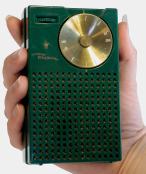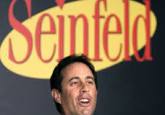 I hope you are enjoying this holiday weekend celebration of America’s independence 244-years in the making.
I hope you are enjoying this holiday weekend celebration of America’s independence 244-years in the making.
As I was thinking about what I’d write this week, I came across this radio item, dateline Fort Wayne, Indiana that said on July 5th in 1929 radio station WOWO returned to the air one day after its transmitter site burned down. Obviously, that wasn’t a very  joyous time for the staff and management at that radio station. It was only four years earlier that WOWO signed on the air for the first time in its storied broadcast history, March 25, 1925.
joyous time for the staff and management at that radio station. It was only four years earlier that WOWO signed on the air for the first time in its storied broadcast history, March 25, 1925.
July 5, 1951
It was on this date, 69-years ago that Bell Labs, and primarily William Shockley, announced the invention of the junction transistor during a press conference the company held in Murray Hill, New Jersey.
July 5, 1956
William Shockley and three others were awarded a Nobel Prize in Physics on this date for “their research on semiconductors and their discovery of the transistor effect,” a discovery that allowed radio to be reborn in car dashboards and on portable, hand-held receivers.
 It was a joint venture between Texas Instruments and Regency Electronics that would produce the world’s first transistor radio, the TR1, in 1954. However, it wasn’t until three years later when SONY would introduce its smaller and cheaper TR-63 transistor radio that this new communication device would become the 1960s/70s mass market success story.
It was a joint venture between Texas Instruments and Regency Electronics that would produce the world’s first transistor radio, the TR1, in 1954. However, it wasn’t until three years later when SONY would introduce its smaller and cheaper TR-63 transistor radio that this new communication device would become the 1960s/70s mass market success story.
Steve Wozniak (Apple Computer Co-Founder) said he had a Regency TR1 transistor radio as a kid and was a big fan. “My first transistor radio…I loved what it could do, it brought me music, (and) it opened my world up,” said Woz.
July 5, 1963
The second Beatles song released in America which climbed to number 87 on the Hot 100 was “From Me to You,” and would mark a second “invasion” by the British kingdom.
It was the transistor radio that gave young people the opportunity to easily access “their music” without garnering their parents disapproval, being able to listen to the radio in their bedrooms, cars and anywhere they went.
The transistor radio opened up a world of new artistic expression along with the dissemination of new ideas. These hand-held radios played rock and roll, delivered the news, connected Americans to the Civil Rights Movement and kept citizens abreast of the ongoing Vietnam War.
I’ll come back to the transistor and William Shockley in a moment, but first, let’s look at some of the other things that changed our world on this day.
July 5, 1971

The 26th Amendment to the United States Constitution was certified, reducing the voting age in America to 18.
July 5, 1989
 The successful television sitcom “Seinfeld” debuted on the NBC television network. The show “about nothing” ran for nine years and has grossed more than $4 Billion, making it the most profitable half-hour television program in history.
The successful television sitcom “Seinfeld” debuted on the NBC television network. The show “about nothing” ran for nine years and has grossed more than $4 Billion, making it the most profitable half-hour television program in history.
July 5, 1994

Jeff Bezos begins a new venture in Bellevue, Washington. On this date, “Amazon.com” was born. In just 26-years, Amazon is only the fourth tech company to join the “$1 Trillion Club.” Jeff Bezos’ net worth is now estimated at $111 Billion.
July 5, 2003
On this date, the World Health Organization (WHO) declared that the SARS virus, known technically as SARS-CoV (coronavirus), was “contained” after affecting 26-countries and resulting in 774-deaths.
Transistor & Shockley
Getting back to William Shockley and his development of the transistor, he would not only change the way Baby Boomers would grow up, listening to their transistor radios, but he is also credited as being “the man who brought silicon to Silicon Valley.”
For you see, one of the key benefits of the transistor was the ability for electronics manufacturers to create smaller and smaller devices, that eventually gave us the computer in our pocket, better known as the smartphone.
1980s to Today
In time, these little transistor radios would be replaced by the Boom Box. Then along came the SONY Walkman (and headphones), followed by the Discman, iPod and today’s internet powered iPhone.
 Each new generation of technological development has moved media consumers away from traditional broadcast radio’s position as the leader for reaching the masses with new music, news and cultural trends.
Each new generation of technological development has moved media consumers away from traditional broadcast radio’s position as the leader for reaching the masses with new music, news and cultural trends.
The broadcast industry has been slow to adapt to the 21st Century. As greatest hockey player of all time, Bobby Orr might put it, to skate from where the puck is to where the puck will be.
Let’s hope it’s not too late.
“You have to change with the times
or
the times will change you.”
-Marv Levy, Buffalo Bills Coach

Amazing all of the historical things that took place around the 4th of July. I turned 18 the year 18 became the legal voting age!
LikeLiked by 1 person
Yes, in writing today’s blog and doing the research, that was the same thing that occurred to me as well Bob.
Thanks for stopping by the blog today. Enjoy the rest of your holiday weekend.
-DT
LikeLike
You either change with the times or you get left in the dust! Nobody really cares about how you did it in the “old days!”
Happy Holiday Dick!
Frank
LikeLiked by 1 person
Exactly Frank. Happy Holiday to you & Sue.
-DT
LikeLike
Radio technology changed with the times for the better; but did radio programming change for the worse? In the 1950s almost all stations aired music formats with newscasts on the hour (or rarely, five minutes before) with most them about five minutes long including commercials; some also had newscasts (sometimes shorter) on the half-hour. In the ’60s and ’70s, newscast start times and lengths changed in order to differentiate one station’s programming from the competition and give it a specific “news image”. Moving into the ’80s and beyond, music stations began carrying news less frequently, to the point that today some stations seem to carry no hard news at all — they might air “music news” or entertainment reports, but little or nothing about local, national or international events of great importance.
Yes, we now have all-news and/or news/talk stations in most markets, but music fans don’t tune in, which means most teens and young adults don’t get their news from radio.
Could there be a connection between the de-emphasis of hard news programming in music radio and the increasing disrespect our youth have for traditional values and authority?
LikeLike
We live in a world with instant access to what you want, when you want it, and the easy ability to avoid what you don’t want.
Gone forever are the days when you had a handful of radio options in any local market and three TV networks.
We no longer even have a shared environment on something like a Google search, as our searches are tailored to our individual search history.
We live in a world with too much of just about everything, but maybe COVID19 is helping each of us to re-set our priorities and find out what really matters in our lives. It’s not more stuff.
It’s my hope that this disruption brings about an enlightenment in all Americans.
-DT
LikeLike
Dick – We’re really talking about content for a local communities. There has always been lots of competition. Local broadcasters have to be “over the air” Streaming, Mobile, Alexa, Social Media and available on all devices. Then it is about content. We all have to be the most important resource in our communities. “Over the air” will be most reliable and appreciated in times of emergency. Otherwise, folks won’t care how they “hear it” so long as it is of interest and important to the community. Bud Walters
LikeLike
Thank You Bud for stopping by the blog and being a good local broadcaster.
-DT
LikeLike